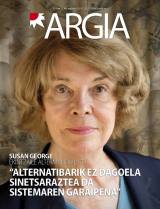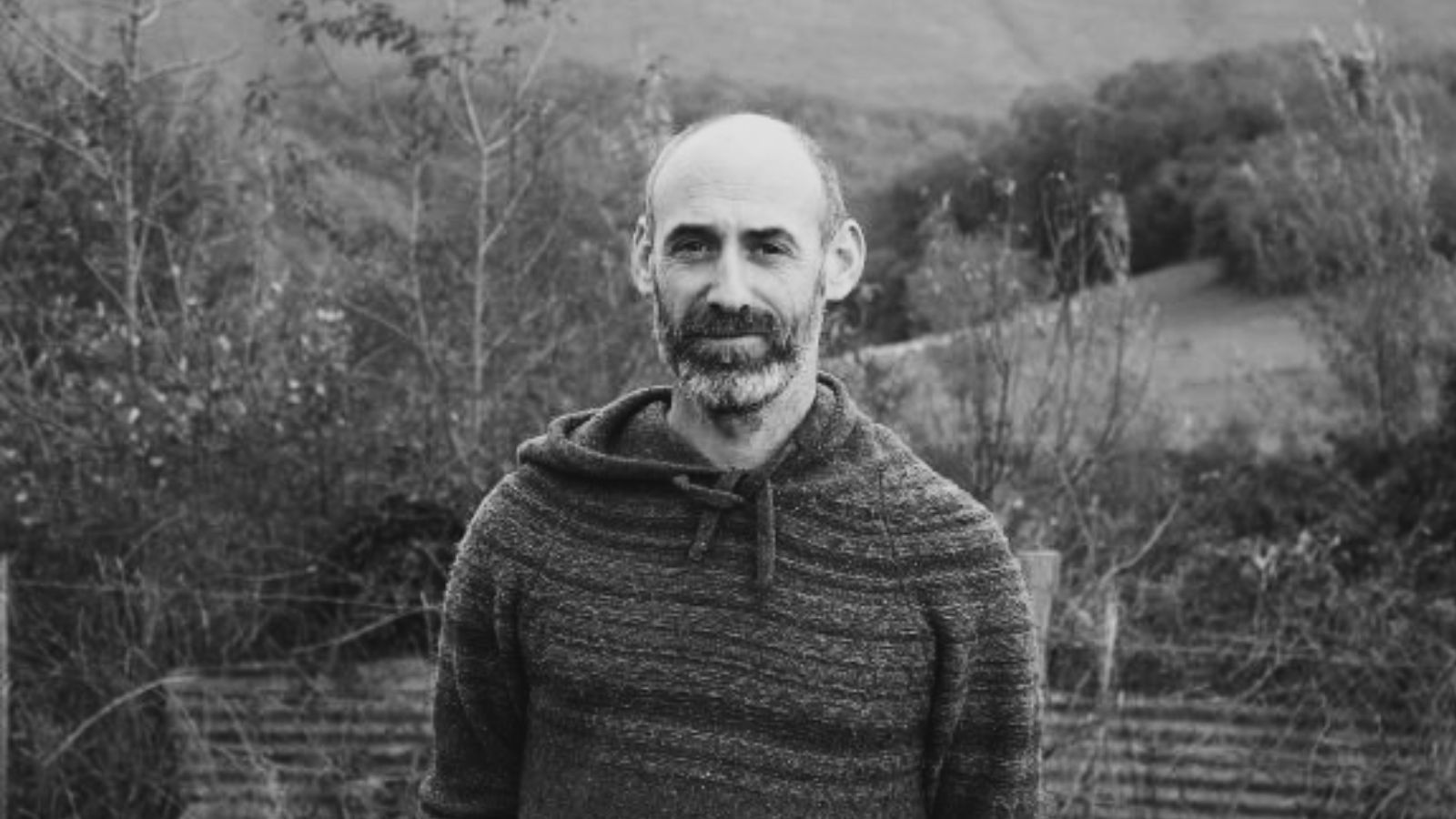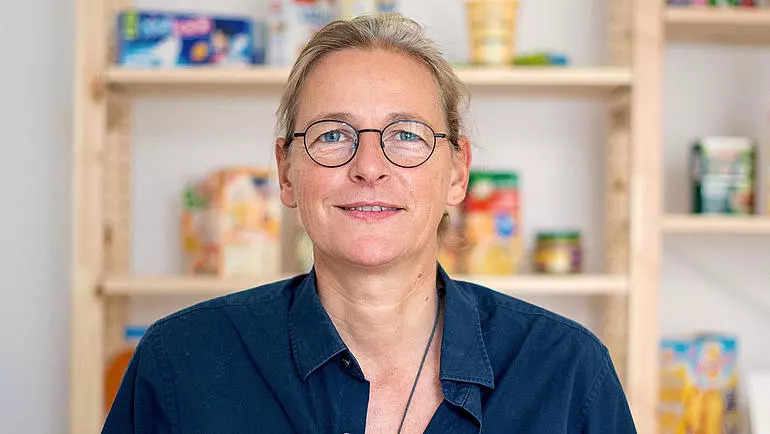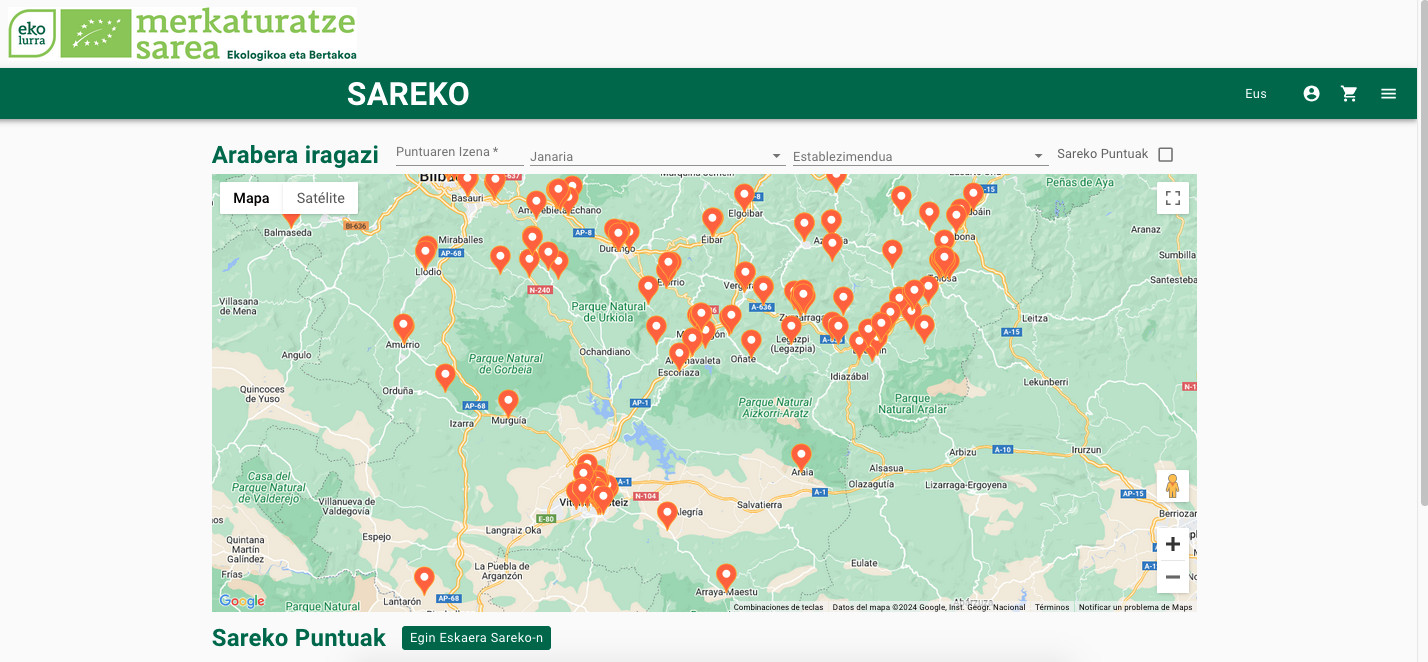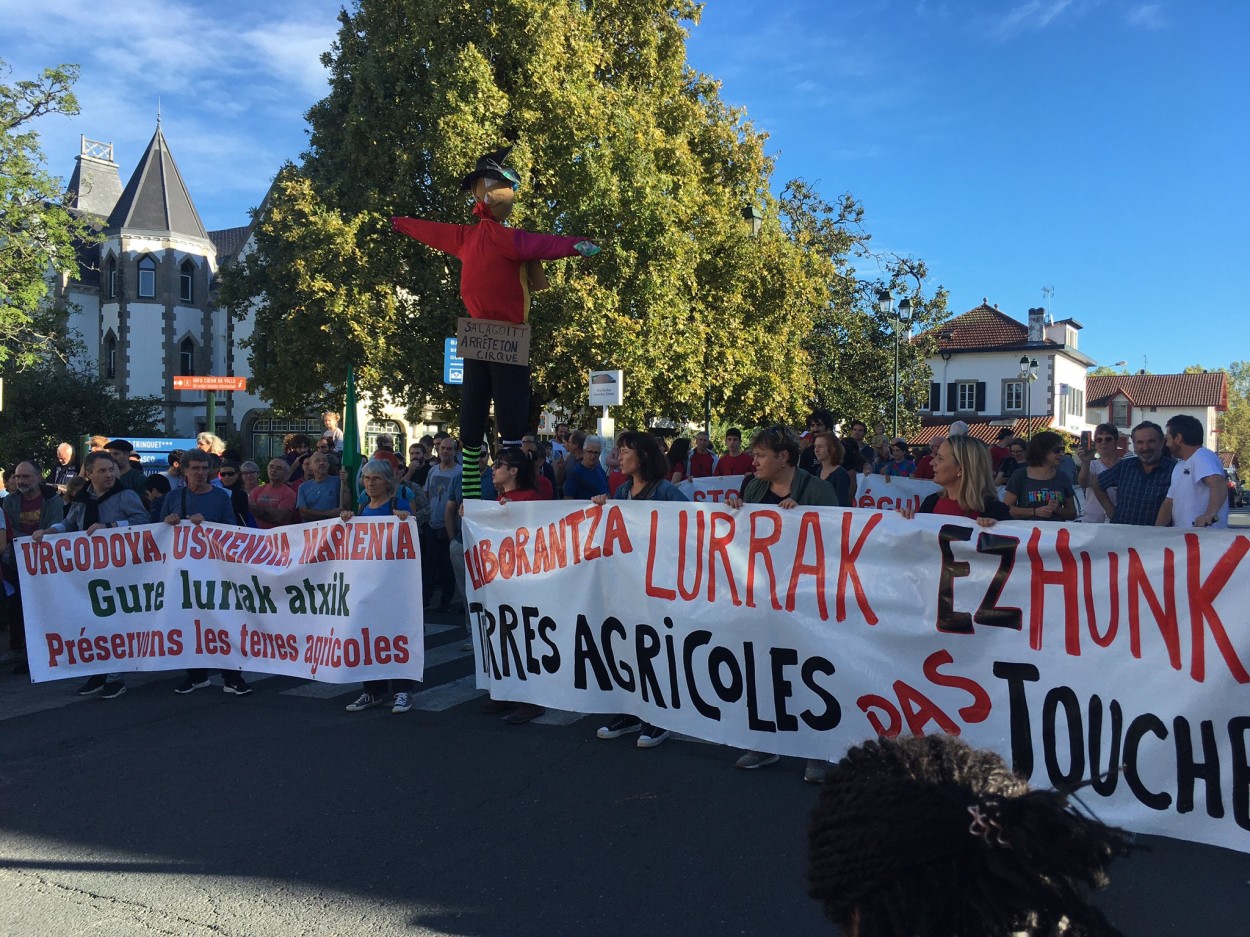If the agriculture of the future were in invisible hands?
- The work of women farmers is not seen. Their financial contribution is nowhere to be counted: many do not appear in the Social Security system nor do they own the productions. Will the Baserritarras Women's Statute be able to balance this situation? In addition to this invisibility stemming from the machista society, the agricultural model that has been promoted from Europe has driven women out of agriculture. On the contrary, the baserritarras women on the shore are clear that the future of agriculture has the model that they themselves have worked on.
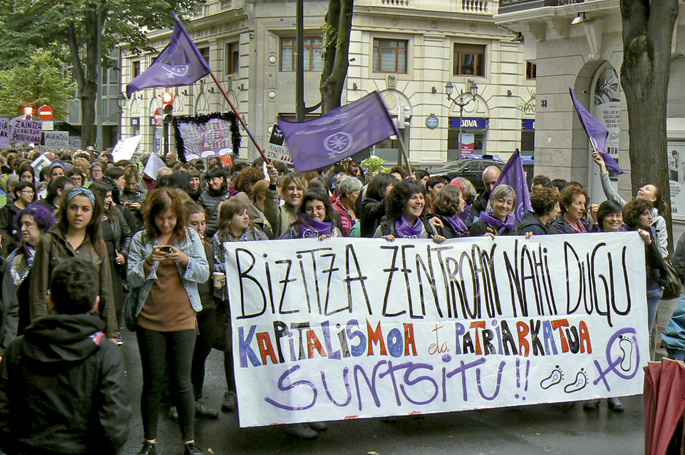
The work of women farmers has no visibility. Isabel de Gonzalo Aranoa and Leticia Urretabizkaia Gilek Baserritarras women: analysis and future perspectives from Food Sovereignty (Baserritarras women: analysis and future perspectives from Food Sovereignty) well reflect their current situation. The division of labor by gender has made family productions have differentiated productive and reproductive works, and the socioeconomic recognition of each of them has been different. If these are hard surveillance tasks necessary to maintain the housing lifestyle, they are also directly related to the productive activity. As in the cities, in the villages, these jobs are not considered “jobs”: the National Statistical Institute (INE) says that domestic work will not be taken into account in agricultural work.
But the productive work done by women in the villages is also hidden: many do not contribute to Social Security, and the productive work done by women has not been considered as agricultural activities (neither in INE statistics, nor in the laws), although they have a bearing on the domestic economy, such as the production of processed products (pigmeat, cheese...) or direct sales.
In addition, production is usually in the name of man. According to the latest census carried out in the rural area of the CAV, 68% of farms are for men and only 32% are for women. The lack of ownership of the production generates imbalances within the household, for example, when making decisions in the management of the activity.
The lack of legal, economic and social recognition leads to a lack of knowledge of their status as workers. The work of the baserritarras women is not considered a professional work, but a “support for the house”.
Why do they not appear in Social Security?
The industrialization brought the people of the villages to the cities and emptied workers into the farms. Industrial agriculture, in turn, has taken women out of farms. Arantza Arriene tells us the evolution, as they embed the apple juice in Ozaeta (Álava): “In Social Security we are much less peasant and among them we are about 30% (although it is said that in recent years women have increased a little). Where a lot of machining has been done, for example, in the Alavesa plain, machining has left women out of this activity.” Why do they not appear in Social Security? “In agriculture, the benefits are not great and sometimes the Social Security of one of the houses is sacrificed, and it is usually that of the woman. It has a lot to do with profitability and elsewhere with the male society: you prefer to buy a tractor rather than the home tractor in the Social Security”.
Status of Baserritarras Women
The recently adopted Statute for Baserritarras Women by the Basque Government will have to cope with this invisibility situation that generates inequality of rights for women. To this end, the Basque Government will grant aid to encourage the contribution of women farmers to Social Security. On the other hand, it will promote the appearance of women as holders of farms, on their own or in a shared way: farmhouses and agricultural enterprises holding women will receive more points in public competitions or grants.
For the purposes of this law, women who earn at least half of the annual income of the agricultural activity shall be part of the ownership of the holdings. But what are – and what are not – “agricultural activities”? Alazne Intxauspe explains the key: Intxauspe is a farmer and sells in baskets the fruits of the orchards of Iurreta (Bizkaia). She is a member of the women's group of the Etxalde movement that drives sustainable agriculture. He pointed out that his request was for this Statute to take account of the processing and marketing of agricultural products as well. And they are pleased that they have managed to incorporate this approach into the Statute: “Because, if not, it is very difficult for women’s working hours to be linked exclusively to land, which requires intensive activity on many hectares.”
Intxauspe has also welcomed the fact that according to the statute, in organisations related to agriculture, 40% of representation in four years’ time will be female – otherwise they will not be able to receive subsidies.
To what extent is it going to get the Statute to influence the situation? Intxauspe is cautious: “Other experiences we know question the effectiveness of similar statutes. For us the Statute is a tool; this law can be improved, of course, and we are going to improve it, but what we are asking is to provide resources to what is there, to put a budget and to give strength”.
Agriculture and feminism of the future
The industrial agricultural model driven by European aid (see table on the previous page) “is neither female nor good for society”, explains Arriene: “Women don’t attract us this agriculture, the one that asks for a lot of money, big investments... Our job is to make small investments, to see, to change, to share...”. Data show that the larger the number of farms on land, the smaller the number of women holding them. In the words of Arriene: “Farms where women hold a lot (but a lot, eh!) They are smaller on the ground and much more diversified. The activities in which men work are much more specialized. In the female farms there are usually flowers, there is vegetable garden, transformation of products from the vegetable garden, a bit of chickens, some medicinal herbs are dried... They cover many more areas of agriculture. And in women’s farms, sales are much higher than men’s, so an agricultural model that is good for the majority of the population looks more like women’s farms than men’s.” Philosophy, and profitability? Otherwise it cannot be maintained, it is the argument of large farms: “Both big and small, we all win well and we all look alike,” Arriene said. “Some see more money, they see moving, but they’re no more profitable.”
Intxauspe is also clear: “Food sovereignty cannot be understood without feminism. Agriculture has a female face. Our model of marriage is the model of women. For agriculture to last, we must radically change the model. An intensive model, with many hectares, that needs monocultures, fertilizers and chemical pesticides, with lots of expenses... This agriculture only involves the conversion of the farmer into a precarious worker. Everything is controlled by the central industry, capital.” Stating that the agriculture of the future is sustainable, Intxauspe summarizes its bases: “We have to recover the autonomy that has characterized the dwelling. That's what women have done throughout history. This model is the only one that can last. Self-contained, hardly needing external input, not buying seeds, etc. Diversified and that closes the cycle in the house itself”.
Etxalde nekazaritza iraunkorraren aldeko mugimenduaren baitan, emakume laborarien dinamika indarra hartzen ari dela kontatu digu Intxauspek: “Euskal Herri osoko 70 emakume baserritar gaude sare honetan, eta normalean elkartzen garenak 10-15 gara “. Mugimendu guztiek dituzte garai biziagoak eta iraupenezkoak, eta aurten Emakumeen Mundu Martxak dinamika azkartzen lagundu dielako esker oneko dago: “Aurtengo Emakumeen Mundu Martxako ikurretako bat haziak izan direnez eta elikadura burujabetza landu dutenez, ikusi dugu bete-betean guri ere bazegokigula parte hartzea. Hazien bilketan parte hartu dugu eta Bilboko jaian bizitzaren jasangarritasunari buruzko gure ikuspegia aurkeztu dugu”. Eguneroko jardunean feminismoa euren gogoetetara ekartzen eta baserriko emakumeen artean ezagutzera ematen saiatzen dira, “denetariko emakumeak baikaude baserritarren artean”. Emakumeen Mundu Martxan martxa hartuta, urte osoko plangintza osatzera jarri dira: “Bi lan ildo zehaztu ditugu: batetik, gure taldea indartzeko ekintzak. Horren baitan, oso garrantzitsutzat dugu formazioa. Abenduan ziberaktibismo ikastaroa egingo dugu, internet eraginkorrago erabiltzen ikasteko, bideo motzak egiten trebatzeko... Bigarren ildoa sentsibilizazioa da, taldez kanpoko emakumeei zuzendua. Horretarako, Kubako Campesina a campesina formazio eredua hartu dugu oinarri: Akademiko bat ekarri beharrean bere teoriak kontatu ditzan, beste baserri batera joaten gara han nola lan egiten duten ikustera eta elkarrengandik ikastera”.
- Diru-laguntzak jasotzen dituzten pertsonen %32 dira emakumeak eta %68 dira gizonezkoak.
- Emakumeek diru-laguntza poltsaren %23 jasotzen dute. Batez beste, gizonek 4.814,92 euro jasotzen dituzte eta emakumeek 3.100,27 euro.
- Emakume baserritarren %45,28k 1.000 eurotik beherako laguntza jasotzen du. Eta 1.000-5.000 euro artean emakumeen %33,04k. 20.000 eurotik gorako laguntza jasotzen dutenak, emakumeen %2 dira.
Titulartasuna
Ekoizpenen %29an emakumeak dira titularrak eta %71 gizonak. Emakumeak titulartasunean nagusi dira, ekoizpen hauek ez direnean etxeko diru-iturri nagusia. Ekoizpenaren dimentsio ekonomikoa handitzen den heinean, gutxitu egiten da emakumeen parte-hartzea bai gestioan eta baita erabakietan ere. Autokontsumora bideratutako lurrak gehienbat emakumeek kudeatzen dituzte.
Iturria: Las mujeres baserritarras: análisis y perspectivas de futuro desde la Soberanía Alimentaria.
Ostegun arratsean abiatu da Lurrama, Bidarteko Estian egin den mahai-inguru batekin. Bertan, Korsika eta Euskal Herriaren bilakaera instituzionala jorratu dute. Besteak beste, Peio Dufau diputatua eta Jean René Etxegarai, Euskal Hirigune Elkargoko lehendakaria, bertan... [+]
The two main voters in Kanbo (the mayor and the prime minister) are the rabid ones. Three citizens have been beaten with a plainta, for protesting in favour of the eviction of the neighbor Marienea.Es the second time that, at 06:00 in the morning, they take us out of bed (with... [+]









